
COVID-19 cases started rising this summer, taking many of us—including some health officials—by surprise. It’s believed that one reason is that high temperatures throughout much of the country forced people indoors; another is declining immunity. Whether you’ve contracted COVID-19 in the past or had a vaccination, experts say that protection is only temporary, lasting just months before it drops off. That’s why the updated COVID vaccine has been developed, to refresh immunity and address new variants of an ever-evolving virus. Here’s why experts say getting the updated vaccine this fall is so important.

“What I want folks to understand is that protection is decreasing over time — and this virus is changing,” said CDC Director Mandy Cohen this week. “Yes, you may have had COVID a while back, and that gives you some protection. But to get the most protection against this form of the COVID virus that’s circulating right now, get the updated COVID vaccine.”
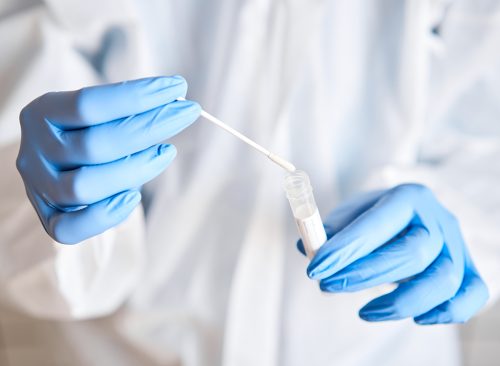
“In terms of today, where we are, it is clear we had this late summer wave. It really appears to have crested and is heading down, but as we head into the winter months… Each of the last few winters, we have seen the virus come back up again,” Dr. Ashish Jha, the former White House COVID-19 response coordinator, said last week. “My expectation is [that] we’re going to see a further decline within probably the next month or two, and then we’re going to see the virus starting to rise again as we get into the holidays and beyond.”
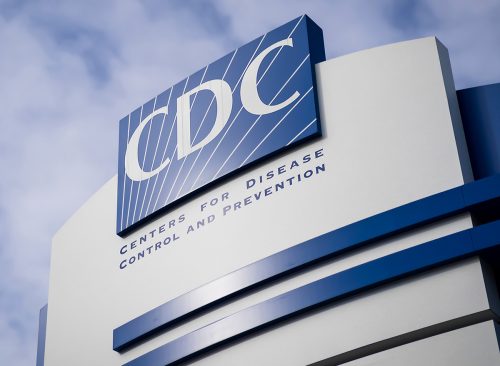
“Infectious disease experts and scenario models provide evidence that this season is likely to bring a moderate COVID-19 wave — causing around as many hospitalizations at the peak as occurred at last winter’s peak,” the CDC said recently.
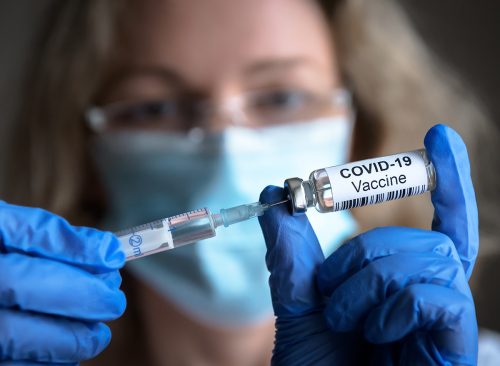
“One thing that I wouldn’t want people to think is that maybe the need to go get a COVID vaccine is lessened since we’re seeing a downturn in hospitalizations,” said Dr. Andrew Pekosz, a molecular microbiologist at the Johns Hopkins Bloomberg School of Public Health.
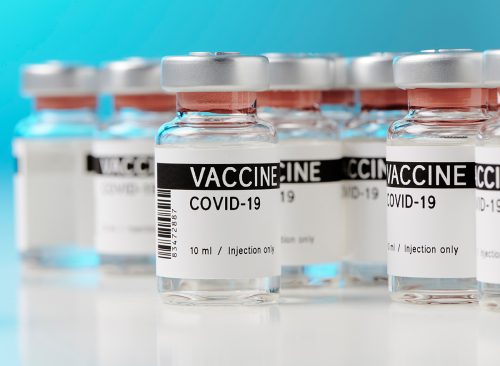
The CDC is recommending that everyone over the age of six months get the updated COVID vaccine. It has been adapted to target XBB.1.5, which was the most common variant circulating globally until earlier this year. The previous vaccines and boosters targeted the ancestral Omicron strain, which is no longer commonly seen. “This vaccine is not a booster. This is updating your immunity to a new variant,” said Dr. Carlos del Rio, interim dean of the Emory School of Medicine. “These vaccines are really good at protecting you against severe disease, death, and hospitalization, especially people with higher risks.”
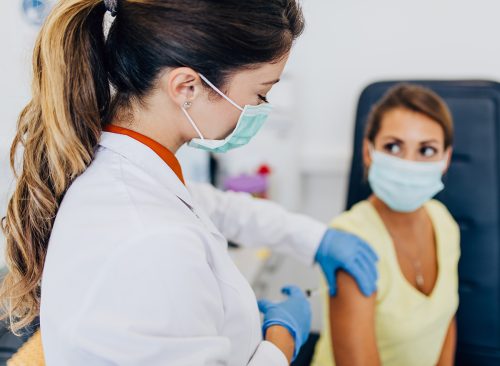
The CDC has said the updated vaccine should also work against EG.5, which is currently the dominant strain in the U.S., and BA.2.86, nicknamed “Pirola,” a recent subvariant researchers have been watching warily because it has more than 30 mutations to its spike protein. They suspected these differentiations might make it easier to catch. But those worries have “largely subsided,” U.S. News & World Report says.
RELATED: Surprising Signs You’ve Already Had COVID

So far, BA.2.86 has remained at very low levels in the U.S. According to the CDC dashboard, BA.2 strains account for only 0.1% of cases in the country at the moment. “Even though it’s really highly mutated, it doesn’t evade as much of that pre-existing immunity as we thought it could,” said Pekosz. “That combined with the fact that when it shows up someplace, it doesn’t really become the dominant virus – so it may not be strong enough to out-compete other variants right now – has moved that a little bit lower on our list of variants that we’re looking at.”














